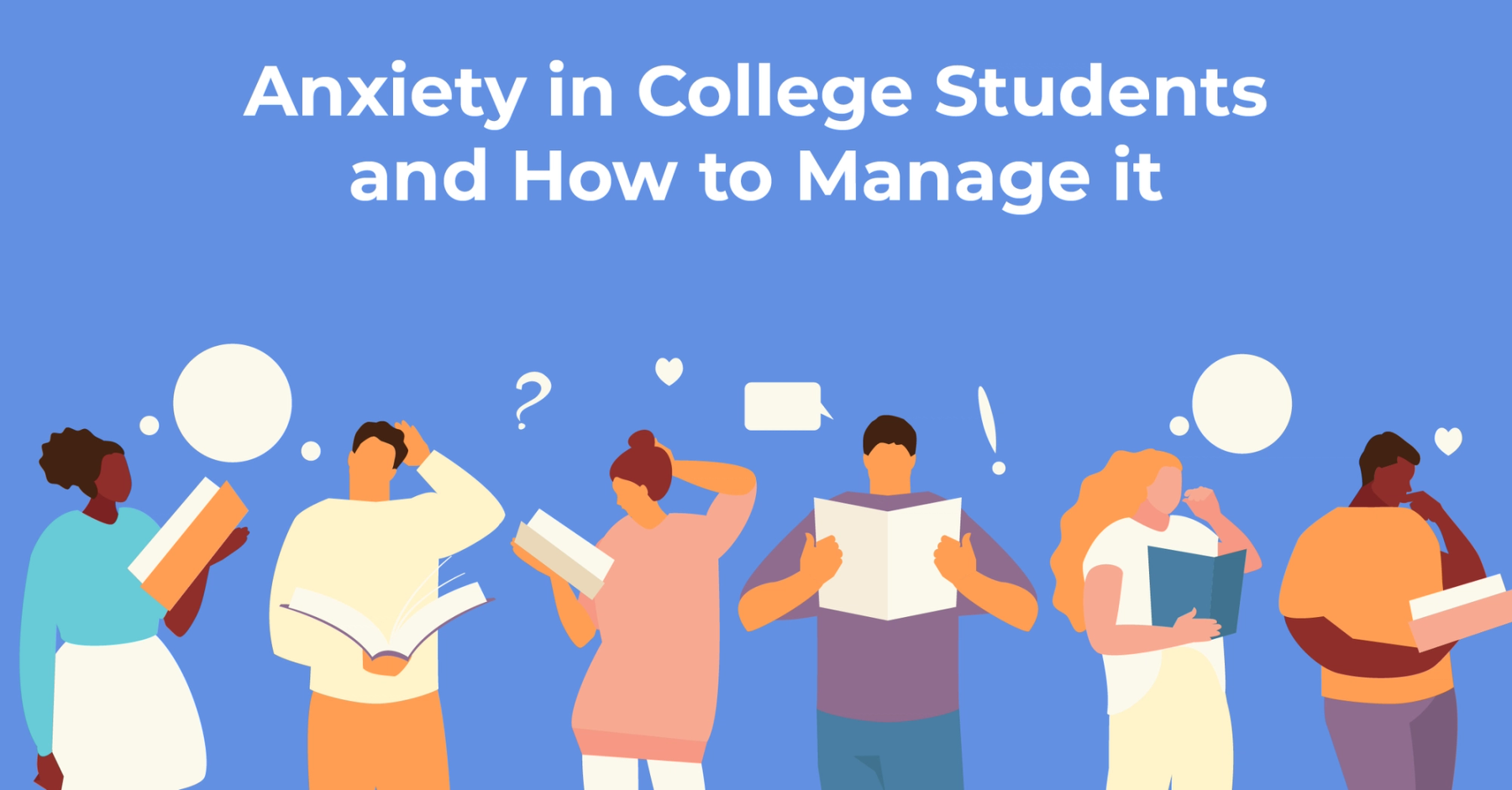August 18th, 2021

I remember being in the fall semester of my senior year of college trying to determine what I wanted to do “for the rest of my life.” I was sitting in front of my computer paging through graduate school applications and attempting to write my statement of purpose. As I read through the prompts, nothing exciting or insightful came to mind. I was 21 and had limited experience.
Quickly, I found myself paralyzed, thinking my future was doomed. In my mind, if I could not write one essay, there was no possibility that I would ever have a satisfying future career. Instead of writing, I closed my computer, lay in my bed, and pretended that I no longer had any responsibilities.
The following day, I described my experience to my advisor and she gently told me that it seemed like I was experiencing anxiety about the upcoming changes associated with graduation. That was the first conversation I had in which I was able to identify that I had anxiety.
I was not alone in my struggle with anxiety. College students struggling with anxiety and depression are highly common. According to Pedrelli et al., anxiety disorders are the most prevalent mental health disorders among college students with 11.9% of students reporting symptoms aligned with an anxiety-related disorder. Additionally, college students are uniquely impacted as 75% of individuals who have a mental health disorder experience their initial onset of symptoms by age 25. This means that it is highly likely that most folks who have anxiety experience the onset of symptoms while in college.
Unfortunately, these statistics have not improved in recent years due to the COVID-19 pandemic. According to the Best Colleges report, 45% of college students reported an increase in anxiety due to the pandemic among other increases in mental health-related symptoms.

Part of getting support and managing college anxiety is understanding what anxiety is. Many of us experience some symptoms of stress throughout our life, but only a certain presentation of anxiety symptoms qualifies for a mental health disorder and specific treatment. Outside of mental health-related fields, many may not realize that there is a wide variety of anxiety-related disorders.
Those presented in the DSM-5 include generalized anxiety disorder, separation anxiety disorder, selective mutism, specific phobia, social anxiety disorder (social phobia), panic disorder agoraphobia, substance/medication-induced anxiety disorder, and anxiety disorder due to another medical condition.
One of the most common types of anxiety in college students is a generalized anxiety disorder which is identified by the presence of the following traits as written in the DSM-5:
If reading the above-listed specifiers for Generalized Anxiety Disorder feels applicable to you or a college student you care about, that is okay. There are many manners of managing college stress and anxiety.

Stress and anxiety in college students can be caused by several factors. Some common causes of anxiety include transitions, academic pressure, peer pressure, new social settings, and unmet expectations. Knowing what is causing student anxiety makes identifying coping skills easier. If you begin to feel anxiety, jot down notes about your experience to build information about your anxiety triggers.
Once you have identified the trigger(s) for your anxiety, tailor your coping skills to that trigger. For example, if the transition from home to college seems to feed the anxiety, prioritize calling loved ones and building new supportive relationships. If the anxiety is related to academic pressure, engage in calming activities like listening to music or going on walks between classes and while studying.
Anxiety can both be improved and worsened based on the types of nutrients we consume. Some foods that have been linked to increased anxiety include processed sugars, meats, cheeses, and ready-made meals; caffeinated beverages; alcohol; artificial sweeteners; and highly processed vegetable oils. Foods that have been linked to improved anxiety include fatty fish such as salmon or trout; Brazil nuts; Vitamin D; egg yolks; dark chocolate; pumpkin seeds; turmeric; chamomile; yogurt; and green tea. This information does not mean that you should never have anxiety-inducing foods or only eat anxiety-supportive foods. It means to be mindful and intentional in finding balance in the foods you eat.

Going to college is highly disruptive to many young people’s routines. It is often the first time that one can select their schedule and manage their time as they choose. It is important to identify the needed aspects of your routine to have balance in academics, socializing, exercise, nutrition, and rest.
As described above, sleep disturbances are a key symptom of anxiety. To manage sleep disturbance, it is important to engage in proper sleep hygiene. Some basic sleep hygiene tools to try include: staying consistent in sleep and wake times to support your internal clock; only using your bed for sleep and intimacy; ensuring your bedroom is relaxing, quiet, dark, and at an appropriate temperature; avoiding using electronics an hour before bedtime; not eating a large meal or drinking alcohol two hours before bed; avoiding caffeine after the lunch hour, and exercising in the morning or afternoon, but not too close to bedtime.
If you or a college student in your life have attempted to manage anxiety with the tips listed above and are not noticing improvements, professional help may likely be useful. Most college campuses have a mental wellness, or counseling center that will offer mental health counseling services. Some college services have limitations or long wait times, so it may also be useful to get support from a provider in your community.
If you are based in the Chicagoland area, Clarity Clinic has providers who work specifically with anxiety. Additionally, there is a group therapy option for those who are interested in working with other clients who understand their experience.
Written By: Sarah Beerman, LCSW, CADC
At Clarity Clinic, we have highly trained staff who specialize in psychotherapy and psychiatry services. To learn more about how we can support your mental health, call Clarity Clinic at (312) 815-9660 or schedule an appointment today.
Our Services
Virtual/Online CarePHP and IOPAdult PsychiatryChild & Adolescent PsychiatryAdult TherapyChild & Adolescent TherapyCouples CounselingFamily TherapyGroup TherapyPsychological TestingTranscranial Magnetic Stimulation (TMS)